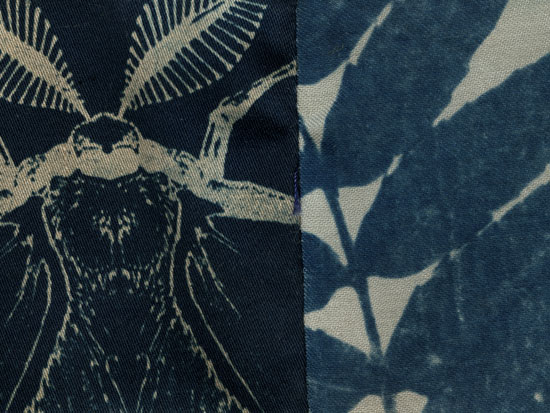 As the 2024 Mobile Medical Museum artist-in-residence, Baulos worked with the museum to research the history of local medicinal plants and develop this extraordinary project. Alabama’s native medicinal plants and histories are the focus of a book and exhibition of works by artist Douglas Pierre Baulos.
As the 2024 Mobile Medical Museum artist-in-residence, Baulos worked with the museum to research the history of local medicinal plants and develop this extraordinary project. Alabama’s native medicinal plants and histories are the focus of a book and exhibition of works by artist Douglas Pierre Baulos.
An associate professor at the University of Alabama at Birmingham, Baulos teaches drawing and bookmaking in the College of Arts and Sciences’ Department of Art and Art History.
As the 2024 Mobile Medical Museum artist-in-residence, Baulos created “Alabama: Midnight Full of Stars,” which combines their research into Southeastern humble medical practices and techniques and their interest in mending and natural dyes. The creative non-fiction book is supported by the Oak Street Garden Foundation and the Mobile Medical Museum.
A selection of mixed-media collages from the project, based on native medicinal plants and their historical uses, will be on display Sept. 7 through January 2025, in the Mobile Medical Museum’s Mary Elizabeth and Charles Bernard Rodning Gallery. For the opening, a site-specific installation will also be on display and Baulos will give an artist talk.
“My research lies at the intersection where scientific understanding, emotional experience, and diverse realities and histories exist, and it is physically and conceptually very grounded in place,” Baulos said. “I consider the natural world as a source of inspiration or subject to represent, and as a realm to influence directly — a sphere of action to transform and improve our lives through creative means. By focusing on these connections, I hope to inspire wonder and reverence for the natural world and encapsulate history in a different way. I am most interested in creating situations where I am expanding our human experience of plants through education, dialogue and creativity.”
To develop this extraordinary project, Baulos worked with the museum to research the history of plants including blood root (sanguinaria candensis), blackberry (rubrus argutus), dogwood (cornus Florida,) dandelion (teraxacum erythrosperum), passionflower (passiflora incarnata), wild yam (discorea), sumac (rhus glabra), elderberry (sambucus candensis), skullcap (scutellaria glabriusunla), goldenrod (solidago), magnolia (magnolia grandiflora) and yaupon holly (ilex vomitoria).
Baulos made the paper, upcycled and foraged for cloth from dumpsters and thrift stores, and made the dyes, emulsions, paints and inks from plant material sustainably foraged in South Alabama.
The accompanying exhibition is a body of work that explores Alabama medicinal plants, medical and garden tools of the Deep South, and suture sewing taxonomies used in Alabama. The aim of the series is to enlarge shared knowledge of medicinal plants of Baldwin and Mobile counties and the state, Baulos says.
“Most of my current visual artworks are paper and cloth narratives that hopefully open into vast, imaginative space for the reader and viewer as site-specific installations and framed works,” Baulos said. “Stories, cloth and books are so important to me because they are universal; they establish our place in the world, aid us in acting wisely, help us to understand others and pass down knowledge. As an author and writer, I make work that hopes to instill joy and fragile exultation at the beauty of the world, which can for queer people be an act of resistance.”
The exhibition and residency are made possible in part through the support of the Alabama State Council on the Arts.